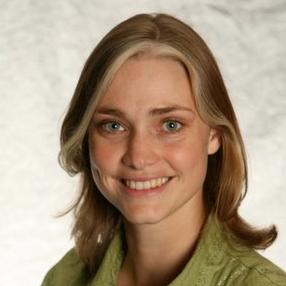Introducing New MiNDS: Dr. Angela Scott
AUTHOR: Kathryn Reynolds

Dr. Angela Scott, Ph.D.
Assistant Professor, Pathology and Molecular Medicine (Anatomy Division), McMaster University
Describe yourself as a researcher. How did you decide on your research focus?
I am a molecular and cellular neurobiologist specializing in the underlying mechanisms of neural plasticity during development and disease-induced neuropathology. My most recent work has focused on the abnormal modulation of neuronal and glial cell communication in Fragile X Syndrome, one of the leading genetic causes of Autism.
Since early on in my academic career, I have always been attracted to neurophysiology. I don't actually remember making a distinct decision to dedicate my research to this field; I just followed my sense of curiosity.
How will you apply your knowledge of physiology to the study of astrocytes?
How the different cells of the nervous system communicate with each other and orchestrate complex functions during growth or stress is fascinating. We are particularly interested in the molecular relationships that affect the cellular physiology of astrocytes and, ultimately, how these interactions influence development or homeostatic functions in the CNS. We try to take an integrative approach that includes a multitude of molecular assays, simple to more complex tissue culture methods, and whole tissue assessments. We particularly specialize in live-cell imaging. The fact that astrocytes are an incredibly dynamic cell type makes this especially rewarding!
Can you outline some of your responsibilities as a new PI?
As you would expect, my primary responsibilities consist of student mentorship, management of research projects, teaching within the medical program, and, of course, grant writing. However, there are countless other responsibilities that also fall onto a PI's plate that you don't necessarily anticipate. In fact, as I answer this question, there is a 99% likelihood that I am supposed to be doing something else that I am not even aware of yet!
What has been your biggest challenge when transitioning into your new role? Were there any unexpected surprises?
As a new PI, I think that everything comes at you a bit hard and fast. From my perspective, knowing where to start is one of the biggest challenges. Once you figure out the 'what', the next big challenge is to figure out the 'how'. Many current and past faculty members do their best to warn you about this, but I don't think that anyone can be completely prepared for it. Despite all this, I think the most unexpected surprise was how much I still enjoy it. I really can't imagine doing anything else!
Which aspect of your new job do you enjoy the most?
As an academic, I have always enjoyed getting immersed in the literature and the questions that arise. However, I think that providing mentorship and guidance through teaching and supervising students is one of the most rewarding and enjoyable aspects of this job.
How do you unwind and find balance between your personal and professional life?
I think that the word 'balance' suggests that there is a secret formula for when all aspects of life are equally humming along. Unfortunately, I have never personally experienced this. Instead, I think that I relate more to the juggling analogy. When you put your energy into pushing up one aspect of your life (ex. career), ultimately all other aspects of life (ex. health, family, etc.) are in a state of either incline or decline, depending on past attention. My challenge is keeping all balls in the air as long as possible without letting any fall completely. At the best of times, I succeed and recognize which aspects need another push; at the worst of times, I drop nearly everything and need to re-group.
For me, I find it most relaxing to simply be present wherever I am and whomever I am with. It is a losing battle if a person is always worried about what they're not doing. So, when I am with my kids, I keep my computer/phone off and distractions to a minimum. I also work to carve out distinct and undistracted time for fitness, students, friends, and family every week to maintain not only the juggling act, but also my sanity!
One of the challenges of starting a new lab is recruiting graduate students. What qualities do you look for in a prospective student?
I think that the lab could be seen as another type of family. As with any family, it may not always consist of people who share all your likes and dislikes, but they work together and have your back whenever you need it. I look for people that want to join a team, not just a project. Ambition is an admirable quality, but having an equal sense of responsibility for the success of close colleagues is something quite remarkable.
What is your biggest piece of advice for MiNDS students?
As I was nearing the end of graduate school, someone much wiser than myself told me that 'great people continue to be great wherever they go'. It wasn't given as a manner of advice but rather as an insight that suggested success is dependent on the person and not the environment. I found it much easier approaching career decisions when I believed that success would be determined by my actions within a position, rather than its location or title. I think graduate students should try to reduce the pressure they feel to make the 'right' decisions for their career, and instead put that energy into thinking about what they actually want to do, and then make the most of each experience.
Thank you Dr. Scott for sharing your insights with us! We look forward to watching your career unfold here at McMaster!